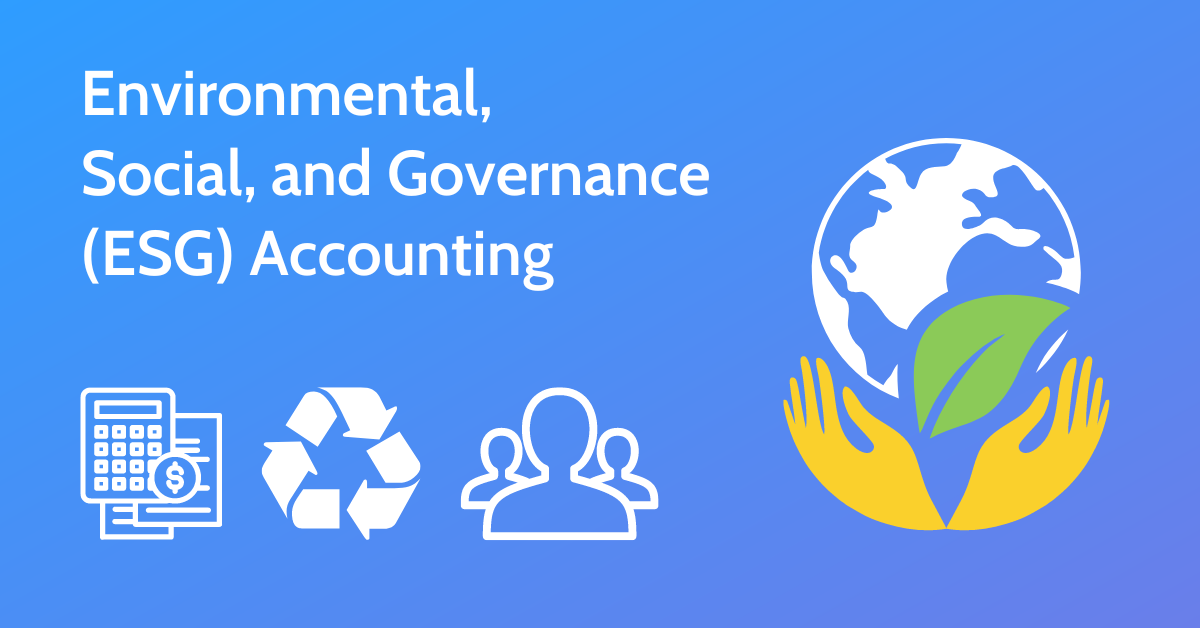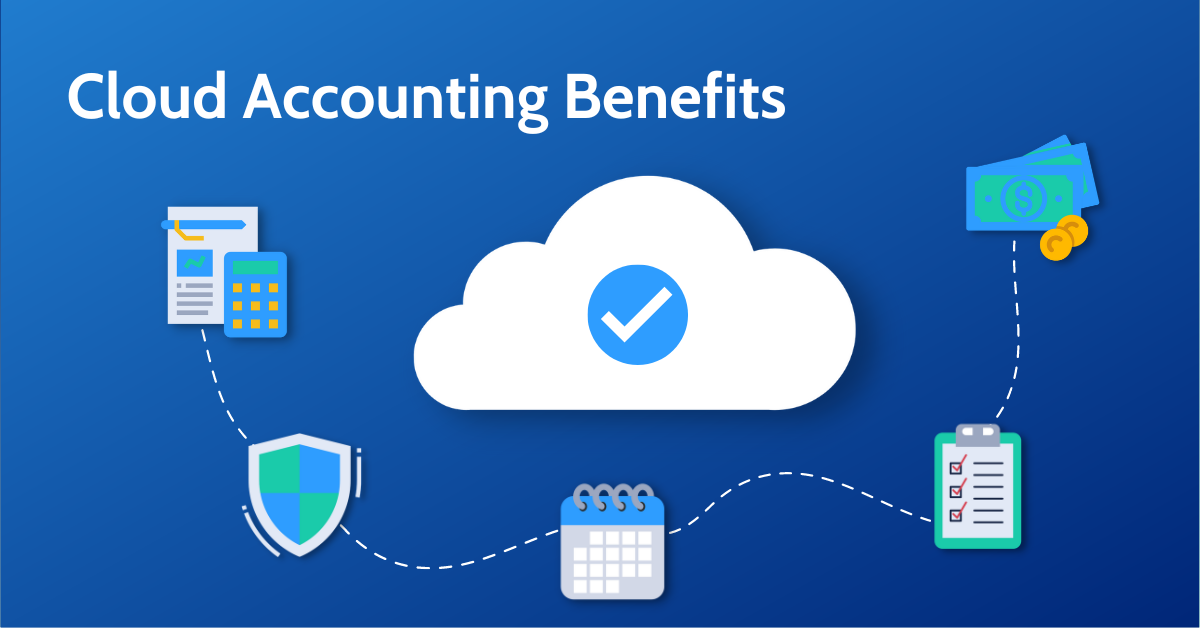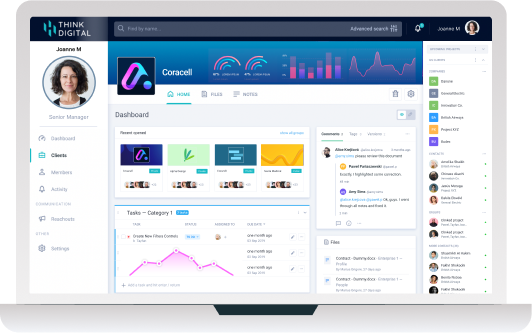Environmental, social, and governance (ESG) accounting is a form of accounting that deals with how companies are approaching environmental sustainability in the present and future. It is concerned with how a business impacts the environment, what steps they are taking to reduce carbon emission and how it handles climate change risks.
It also deals with the social impact a business has, including subjects like diversity in the workplace, inclusion and social equity. Also, ESG accounting covers any business ethics, risk management and international financial laws.
ESG accountants are concerned with two different issues; what customers will do to ensure they have a positive impact on society and the environment and what they are doing to manage any risks relating to those matters. To help with these matters, ESG accountants have a number of responsbilities, including constructing reports containing the customer ESG activities, developing strategies and tackling ESG issues as they arise.
Any business that hires ESG accountants to look after that sector of their business is thought to be more sustainable and face less risk than those that do not. If a business is managed in an unethical or inappropriate way, it may result in actions that could hurt the company’s finances and investors.
ESG accounting has several vital components, including creating transparency for a client, attracting investors and additional financing, and meeting investors’ and regulatory boards’ demands.
Benefits of ESG Accounting
Better Risk Management
By employing an ESG accountant, any potential risks from environmental, social and governance changes, such as climate change, regulatory change or equity policy change, can be identified and controlled to ensure minimal risk to clients and their companies.
Improved Company Reputation
ESG accountants can provide detailed and accurate reports of their client’s ESG performance. Through these reports, businesses can build their reputation as an ethical and environmentally conscious companies. Prospective employees, investors and customers will use the company’s ESG data, complied by their ESG accountant, to decide if they are willing to work for, invest or support them.
Attracting Socially Responsible Investors
ESG accounting has value to investors and can attract a range of new investments by showing investors that a company is socially and environmentally conscious. If the data that ESG accountants provide investors shows the company to invest in a sustainable future, it raises its ranking among peers and business competitors. In today’s climate, ESG accounting is something that every successful business need to invest in, in order to keep and attract investment and capital.
Aligning Business Practices with Stakeholder Expectations
Stakeholders or investors look for businesses to implement ESG processes and accountants to ensure that they are transparent with all their business dealings. Investors have mandated that ESG reporting be constructed and completed on a regular basis. Without such analysis, companies face losing shareholder support.
Long-term Sustainability and Profitability
ESG accountants can ensure that their clients and businesses not only focus on being sustainable in the present but also construct future plans for their clients to continuously improve their ESG ratings. By implementing a continuous ESG improvement scheme, companies can show customers and investors alike that not only are they a sustainable company now, but they will be even better in the future, which can promote investment and profits.
ESG Reporting Standards
Standardized ESG frameworks are indispensable for verifying that environmental, social, and governance reporting is accurate and complete. These regulations require companies to report their performance in these domains according to pre-defined criteria, thus enabling them to be more open about their ESG effects. By creating stable metrics for disclosure, ESG reporting standards make it simpler to compare across industries and regions so progress can be monitored efficiently.
To meet these standards and effectively communicate their ESG KPIs, organizations must reveal data such as their ecological impact, social performance, human resource practices, governing structures, and procedures. Additionally, the standards provide instructions on how to effectively communicate this information in an engaging way.
Not only do ESG reporting standards provide organizations with valuable guidance on how to report their data, but they also offer investors and regulators a means of evaluating progress against set benchmarks. As such, companies are held responsible for the choices they make while being motivated to work towards continuous improvement. In essence, ESG regulations serve as powerful tools that generate transparency around sustainability efforts, enabling stakeholders an inside look into how businesses assess and manage their environmental and social impacts.
Challenges of ESG Accounting
While ESG accounting is being implemented in every business that wants to continue to be taken seriously in today’s market, there are a number of challenges that companies have to face. One of the more prominent challenges is a lack of a standardized reporting framework. As businesses are becoming more global due to globalization, there needs to be a universal set of standards to ensure every company is on the correct path. There have been three different frameworks proposed for standardized ESG reporting. If these frameworks are implemented, it will push more companies to look at implementing an ESG accountant into their business.
While it is easy to report how much becoming more sustainable and ethical will cost a business, there is still difficulty in measuring and quantifying non-financial factors. As there are many positives to implementing ESG processes into businesses, many benefits are not directly financial but promote the company in a great light that increases business opportunities. For ESG accountants, this side of reporting is difficult to portray and requires some creative thinking.
ESG accounting is a new way of promoting a business in today’s climate and is something quite valuable to a company and its investors. But while many environmental and social processes can be implemented without little costs, accountants need to be wary that while investors may want to implement specific strategies, the cost may out weight the profitability the business would make from such investment. It is a balancing act between being socially conscious, keeping investors happy and retaining profits.
ESG Accounting in Practice
ESG accounting is not just something that, in theory, works and boosts business while protecting people and the environment. It is a process that has been implemented by some of the most prominent and successful companies in the world. Businesses like Exelon Corporation, Pepsi Co. Inc., Paypal Holdings Inc., Verizon Communications Inc. and Apple Inc. have successfully implemented ESG accounting into their business and have benefited tremendously.
There are several ESG reporting frameworks that can be used by businesses to have a more comprehensive reporting system and a clear intent of what a company is trying to achieve by implementing and using ESG accounting. Some of the main ESH reporting frameworks are Sustainability Accounting Standards Board (SASB), Task Force on Climate-Related Financial Disclosures (TCFD) and the Global Reporting Initiative (GRI). Using these frameworks will standardize your business towards a more sustainable future.
Any business looking to implement ESG accounting practices should first set specific, attainable goals. Once the goals are set, the company should be assessed to find the easiest way to implement said goals into the framework of the business. At this time, a budget should also be set to ensure that by making the business more sustainable, you are not making it unprofitable.
Once all the essential parameters have been set, an ESG framework and roadmap can be constructed. This framework is a detailed report on how the company will approach their new sustainability and ethical goals. These goals should be monitored closely to ensure ESG accounting practices are adopted within the company.
Future of ESG Accounting
The future of ESG accounting will show a rise in regulation and standardization for accounting and reporting worldwide. As the social and environmental impact becomes a hot topic throughout the world, businesses will have to adopt ESG accounting to remain at the forefront of new investment opportunities and revenue.
As the demand for transparency and responsibility in financial reporting grows, so does the need for accountants proficient in ESG standards. This integration into accounting practices highlights the need for professionals who can navigate ESG complexities, especially in a remote setting where traditional skills merge with a deep understanding of ESG reporting. This expertise is increasingly pivotal in attracting investments and fostering sustainable business practices. For those looking to align their career with these evolving requirements, the remote accounting jobs available across Europe represent a significant opportunity. Explore these opportunities further to enhance your career in a landscape driven by ESG principles.
ESG accounting shows companies not only what they are doing now to help develop their sustainability and ethical goals but also a plan for a more sustainable future. It keeps companies accountable for their impact on the planet and society, which in today’s modern is an essential task.
ESG accounting is the future of the accounting sector. With an increased number of accounting tasks being automated by AI or cloud computing, accountants have to rethink their job specifications, and ESG accounting is where they are needed. It is a part of the global industry that is booming, and it is where accounting is moving towards.
More about Accounting:
- Artificial Intelligence (AI) in Accounting
- The Future of Accounting: Adapting for Tomorrow
- Most important recent developments in the accounting industry
- Why more accountancy firms are choosing Clinked as their client portal
- How To Start An Accounting Firm: 8 Steps Towards Success
- Virtual Accounting Firm: How To Make It A Success
- How Accountants Can Support Businesses Growth
- Clinked for Accountancy Professionals
- Reducing churn by providing exceptional client service: A guide for accountancy firms
- Could AI replace accountancy professionals?
- Choosing Client Portal Software For Accountants










Let Us Know What You Thought about this Post.
Put your Comment Below.